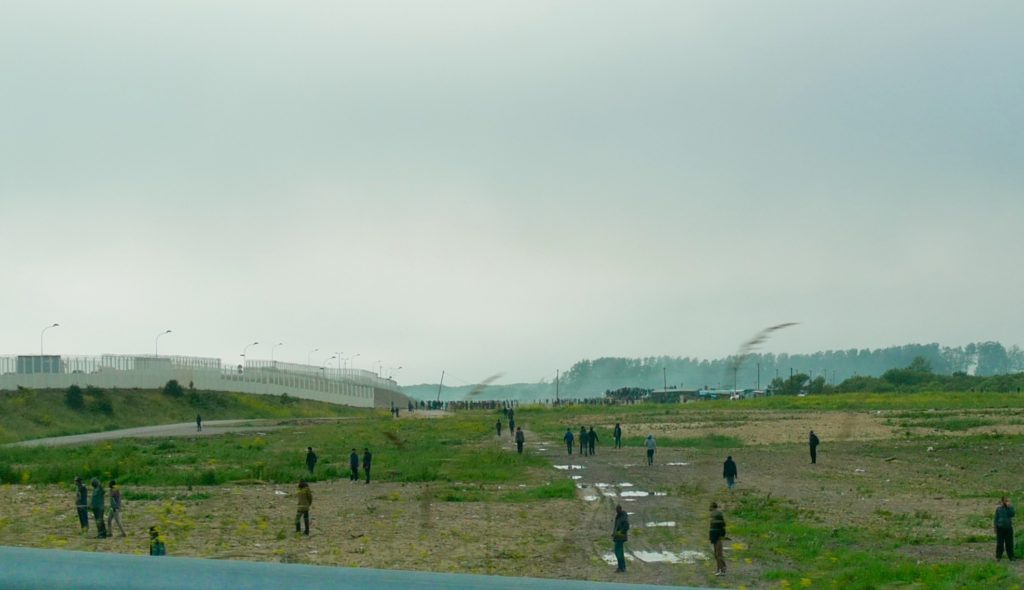And yet, it is apparently not all that uncommon. The riot police have their orders: to contain the migrants in the camp and prevent them from attempting any more stowaways. As we eventually got in the car to leave, the visual was striking: the police in full riot gear in a face-off with several dozen migrants. I was reminded of the video a Palestinian refugee from Syria showed me in Athens of Turkish police with knives boarding the inflatable boat they were in with orders to puncture the boats. Like the French riot police, they were following orders to stop the flow of migrants leaving their shores.
In spite of the contrasts between what we experienced in Greece and France, the parallels are undeniable. The great majority have crossed water under perilous circumstances, be it the Aegean or the Mediterranean. Most of them have someone waiting for them in a prosperous European country, having gone ahead to seek a better life. And most of them still in the camps have nothing left.
Our oldest son and his brother-in-law, also a dear friend of ours, wrote a song about the plight of the refugees in this latest wave of the past year to two years. I leave you with a rough audio recording, along with the lyrics, below.
We did not come away from our experiences with specific ideas or strong opinions about what should be done to stop the Syrian war, or solutions for solving the massive challenge facing Europe at this time. What we did come away with is a renewed awareness of the senselessness of war, as well as not one but dozens of stories — stories that put a face on this crisis and have left an indelible impression on us. We know we cannot remain indifferent — including to those in our own city.
[audio m4a="http://daviddurham.org/wp-content/uploads/2016/06/Row.m4a"][/audio]
"Row"
by Jonathan Durham and Brian Beise
So the plan has changed, so we quit the land,
So we lost our home, I still have your hand
So the dark is deep, and our vessel shakes,
I will call your name, and the day will break
See there's the sunlight; it was never really gone
It's travelled far and it has farther still to go
The wind has died but we will set our sails, love
There is no tide so we will row
So waves of our friends crash onto the shore
Everyday we choose another last resort
So the borders close and the waters rise
We will ride these boards and find the sea's good side
See there's the sunlight; it was never really gone
It's travelled far and it has farther still to go
The wind has died but we will set our sails, love
There is no tide so we will row
We haul on frozen ropes, salt-soaked to the bone
But when you say my name you and I are home
(c) 2015 Brian Beise and Jonathan Durham












